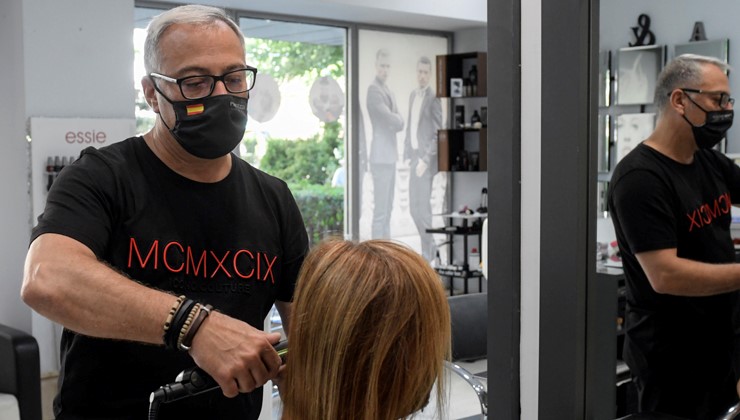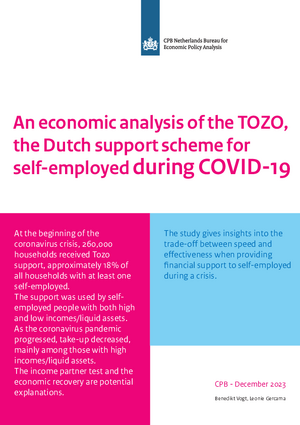An economic analysis of the TOZO, the Dutch support scheme for self-employed during COVID-19
Tozo supports Self-Employed Persons

The Netherlands Bureau of Economic Policy Analyses (CPB) investigated the effectiveness of the Tozo scheme from March 2020 to October 2021 at the request of the Ministry of Social Affairs and Employment. To mitigate the effects of uncertainty and contact-restricting measures at the beginning of the coronavirus crisis, a scheme was quickly introduced to provide income and liquidity support to self-employed entrepreneurs. At the beginning of the coronavirus crisis, 260,000 households received Tozo, approximately 18% of all households with at least one self-employed person.
During the course of the coronavirus crisis, the conditions of the scheme were adjusted. For example, a partner income test was introduced in June 2020. This and the economic recovery led to a decrease in the use of Tozo to 5% of the self-employed. Especially households with a relatively high income and/or liquid wealth no longer received Tozo. During the winter of 2020/2021, which included a second lockdown, the use of Tozo increased again (6%), only to decrease again (2.5%) until its termination in October 2021.
The CPB study shows that the Tozo likely contributed to a decrease in the number of hours worked and turnover of self-employed individuals. Self-employed individuals without a partner worked an average of 10% fewer hours per week (an average of 4 hours) than self-employed individuals with a partner after the introduction of the partner income test. In addition, they had an average of 5% less turnover in the third and fourth quarters of 2020. These estimations are based on a sample, which makes them less precise, and for turnover, data is only available from a few sectors.
One possible explanation for this is the a high marginal decline of the support. The Tozo supplements income up to the social minimum, and therefore, Tozo recipients lose one euro of Tozo for every euro they earn below the social minimum. This can partly explain the negative effects on the number of hours worked and turnover for low income households. This can possibly be reduced by phasing out the scheme less quickly as income rises. As a trade-off, the measure becomes less targeted. It is one of the considerations that can be made in financial support for self-employed individuals during a crisis.
If income support is mainly intended for self-employed individuals with low incomes and few financial reserves, it is logical to include explicit conditions for this, according to the CPB. Options include a household income test and possibly also an asset test. However, it should be considered that this may involve possible delays and extra costs in the implementation.
Authors

